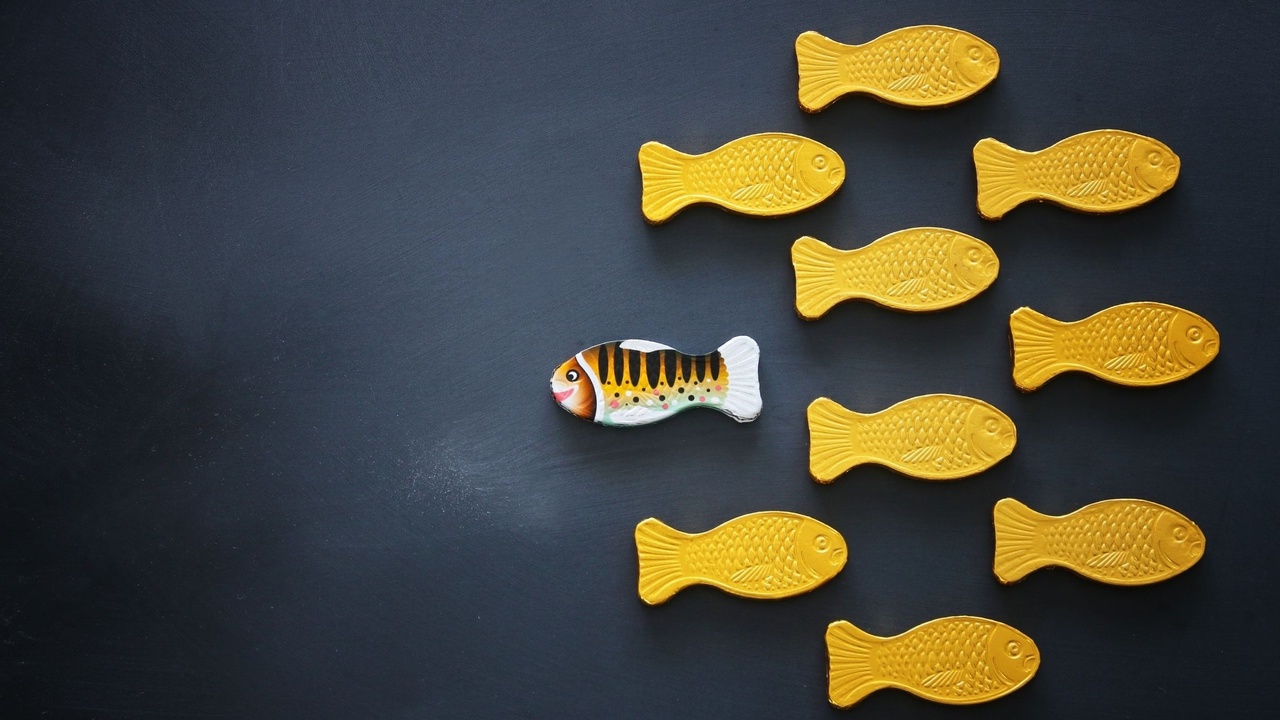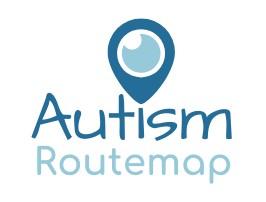5 things you may not know about neurodivergent communication

Difference. The age-old factor that causes fallouts at home, in our communities and on world stages. Men versus women, heterosexuals versus homosexuals, children versus adults, black versus white, protestants versus catholic and neurotypical versus neurodiverse – to name but a few.
It seems that we like what we know. Familiarity makes us feel comfortable and safe. We cling to it like a child clasping their favourite snuggly toy. And when we encounter someone who differs from our perception of “normal”, we feel uncertain. They aren’t like us and so we’re quick to judge … often unfavourably.
Have you ever tried to convince a toddler to eat a new vegetable? Your enthusiasm was quite possibly met with absolute refusal. Mouth clamped firmly shut. As far as they are concerned, that vegetable represents a very real threat to their existence!
When you think about it, we are not so very different to toddlers who won’t give new food the benefit of the doubt. We show the same qualities when, w...
Banish the confusion. Clear guidance on understanding neurodivergent communication.

On an early morning drive the other day, I suddenly found myself in dense fog which faded the road in front of me. I immediately slowed down hoping my tyres wouldn’t be destroyed by one of the many potholes that dot the country lanes where I live. Gripping my steering wheel, I edged forwards cautiously and then, just as suddenly as it had arrived, the fog disappeared into my review mirror leaving me in glorious sunlight.
That fog reminded me of the way neurodivergent people often experience communication. I’ve been told many times by clients that they feel as though there is some exclusive communication manual which everyone else has read – except them. And that leaves them feeling like they are operating in the fog hoping not to hit any miscommunication potholes.
Well, in the interests of lifting that fog, the following is an explanation for some of the miscommunications that happen between neurodiverse and neurotypical people.
Because we’re not dealing with overt physical diff...
Much more than coffee

I love to visit a particular coffee shop near me. They serve heavenly cappuccinos which are the perfect antidote to a cold winter’s day. But it’s not just good beans that makes this coffee memorable …
I first visited the coffee shop on the day that my daughter started secondary school. We were new to the area and feeling very vulnerable in the face of so much unfamiliarity. First day jitters were having a field day. As it was still early, I suggested that we go into the café for a quick bite. No-one had had the stomach for breakfast that morning and for some reason, us mothers always feel better when our children have eaten!
Noticing that my daughter hadn’t touched her food, the owner approached and asked if he could make her something else. Not wanting to offend him, I explained that it was nerves, and not his sandwich, that was the guilty party. He lingered for a while, asking a few questions and reminiscing about his son’s time at school. Although I don’t recall exactly what he sa...
The overlooked communication tool that fuels connection

I recall a time when I was seated next to a young couple in a restaurant. Both were glued to their phones. I assumed they must be mid-argument – you know the point where you’ve reached a deadlock, and no-one is speaking? But I was entirely wrong. Every now and again, in between mouthfuls of burger and chips, one would lean over and together they would smile or laugh at something on one of their phones.
It’s no secret that we are a distracted generation. Our attention is constantly drawn to our phones, computers and TV’s. It’s where we find a treasure trove of likes, comments, memes, funny clips and interesting facts which give us little “feel-good” dopamine hits throughout the day.
You would think that all this entertainment would make us the happiest people group in history. But the statistics tell a different story …
The number of people seeking professional help for mental health issues is rising at an alarming rate. According to a 2017 report by the American Psychological Ass...
Top athletes use this strategy to reach their goals

He took his place on the starter block - focus and determination framed his features. With nine gold Olympic medals in the bag, Michael Phelps, was hoping for another. The starter signal sounded and he plunged into the pool, legs and arms working together in powerful unison.
The crowds roared as the swimmers battled it out, jostling for position. In the final 50 metres, Michael took the lead. To the spectators, all looked well. But in the water, a different story was unfolding ...
What no-one knew, was that Michael was swimming blindly. His goggles had started filling with water the moment he entered the pool.
By the last leg of the race, Michael had no idea where his competitors were. He drew deeply on his inner world, imagining the race as he had done countless times before. He finished, not just in first place with yet another gold medal … but with a new world record to his name!
It wasn’t hope or chance that took Michael to the finish line at record speed. He had...
Why looking for the “silver lining” isn't enough to solve challenges

In the story of David and Goliath, we read that David, a young shepherd boy with no experience of battle, ran towards the giant. The other war-hardened soldiers lay cowering in fear. But David ran. No armour, no sword, no training, no experience. And, no-one who believed that he could defeat Goliath.
What gave David this confidence? He had an invincible belief that he would win. His faith and past experiences with a bear and lion convinced him that he could defeat the odds. And so, he did.
Our beliefs are cultivated over time. They start to form very early on with input from our primary caregivers. That soon expands to include other influencers like teachers, friends and the multitude of everyday experiences which mould our inner world.
By the time we reach adulthood, we hold some very well fortified beliefs about ourselves and the world in general. Have you ever tried to convince someone of your views when they believe the opposite? It really doesn’t matter how much evidence you pr...
The key to managing stress that we aren’t taught about

I recall a particular day a few years ago, when my two children were engaged in a full-scale battle. You know the kind where accusations fly through the air like invisible spears? Things took a turn for the worse and one child pushed the other. My inner parent suddenly leapt into action and what happened next was most unexpected ...
“Use your words!”, I exclaimed in a desperate attempt to end the mother of all arguments. At which point … my children both burst out laughing! Not exactly what I was expecting but … it did have the desired effect. I looked at them totally bemused. What could possibly have prompted that reaction?
My daughters told me that they had been watching the film, Parental Guidance. It’s a comedy in which two grandparents fumble their way around modern child rearing practises whilst looking after the grandchildren. They are given a quick parenting lesson before the grandchildren arrive … where their daughter tries to explain by saying, “so instead of saying, quit y...
Demystifying the needs of autistic / neurodiverse people

In the last two Blog posts, I’ve been looking at some of the issues that cause tensions in relationships between autistic / neurodiverse and neurotypical people. These points of friction often disappear or become smaller as we develop an understanding of one another.
And in the interests of further developing that understanding, today’s post continues to address more stressors that become like a pebble in the relationship shoe. Things that cause friction and sometimes, even relational breakdown.
All relationships are a two-way street. And that means both parties need to adapt in order to accommodate each other. What follows are some ways in which the neurotypical person can adapt to play their part in building a flourishing relationship.
Change
Autistic / neurodiverse people typically have more structured thinking styles which means they may well have a high need for control, predictability and order. Dealing with changes or having things suddenly sprung on them at the last minute...
Building bridges that cross the neurodiverse / neurotypical divide

In my last post, I discussed how the needs of neurodiverse / autistic people are not as obvious as a physical disability because they can’t be seen. These hidden challenges often lead to rifts in relationships because there isn’t a shared understanding of each other.
Common ground is built through discussions in which we actively seek to understand rather than judge. This is how we gain new perspectives and these up-dated viewpoints change lives both now and in the generations to come.
From my years of working with autistic / neurodiverse people, I’ve encountered certain themes which surface regularly. And it’s these, that I would like to share with you.
You may have heard the saying: “if you meet one autistic person, you’ve met one autistic person”. In other words, no two people are alike regardless of diagnosis. So, what follows is my two-cents worth to get the conversation started. It will not apply to everyone, so please don’t be offended by the content if it isn’t rele...
How neurodiverse people can help others to understand their needs

For years, autistic / neurodiverse people have been asking why they should have to change to fit into society. And as voices are slowly being heard, there is a growing trend towards acceptance and embracing difference. Granted, we still have a long way to go but the tides are changing. Society, on the whole, is marching forwards.
When it comes to the workplace, UK law (Equality Act 2010) states that reasonable adjustments should be made to prevent discrimination of people with disabilities. At the core, this is humanity’s recognition of difference. And that awakening, leads us to respect and accommodate diverse needs. In other words, to develop a culture which says, “you’re OK and I’m OK”.
So, we’re improving in the workplace but what happens outside of work? An autistic / neurodiverse person doesn’t finish their working day at 5pm only to find themselves magically morphed, like Cinderella, into someone else. In the real world there is no “bippity boppity boo” – the same nee...

